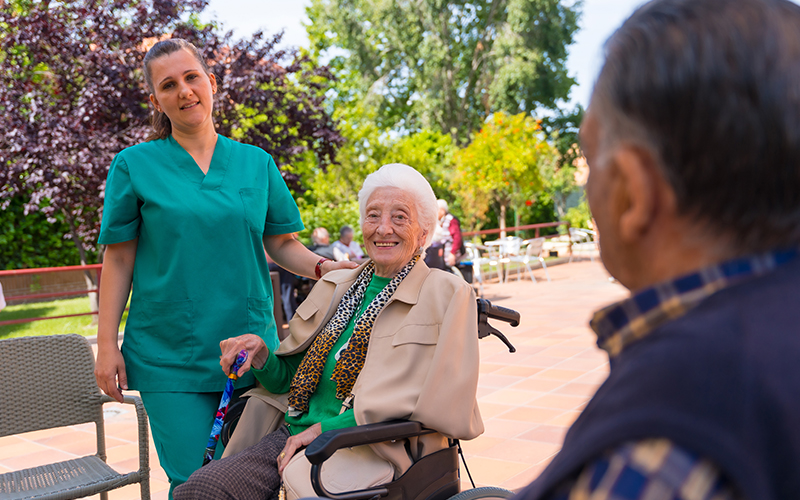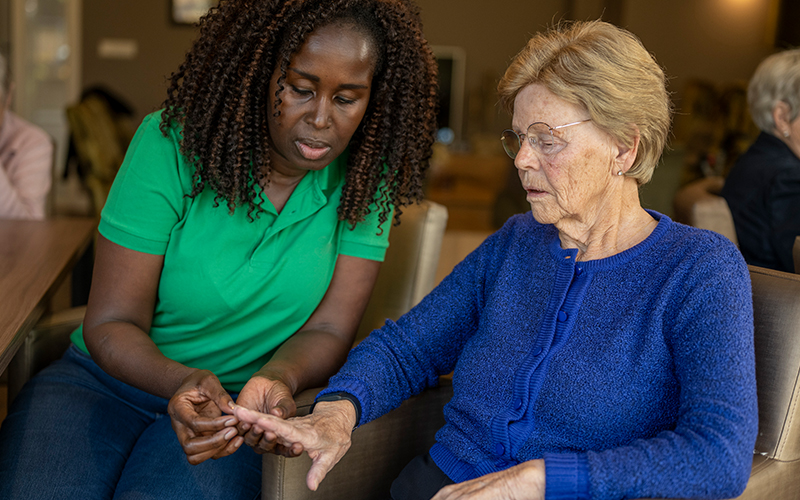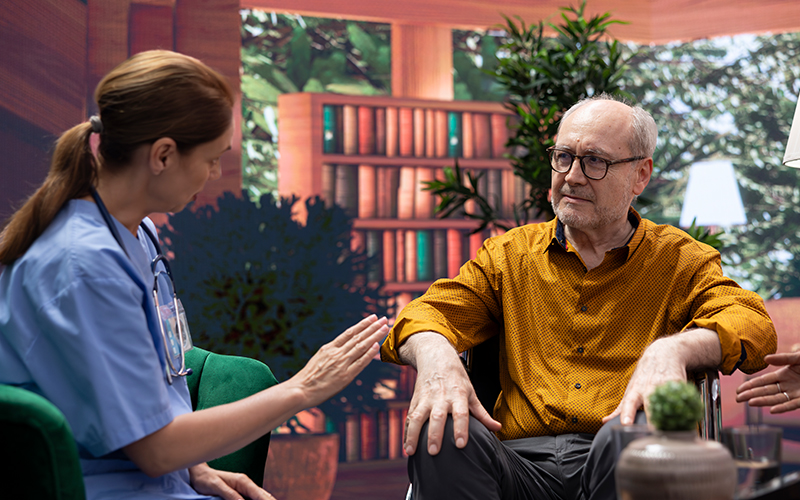In Dementia Care and Challenging Behaviour it is important to Identify Triggers and Patterns
Dementia behaviour triggers Durham are a key area of focus at Stockton Lodge & Denehurst Nursing Homes County Durham. In dementia care, recognising the reasons behind a resident’s behaviour is essential. Challenging behaviours are not random — they are often the result of specific triggers. By identifying patterns, we can improve care, reduce distress, and create a more peaceful and supportive environment.
People living with dementia may find it difficult to express themselves or understand what is happening around them. As a result, they might respond with behaviours that are challenging for carers and family members. These behaviours are messages, and with the right approach, we can interpret and respond effectively.
What are behaviour triggers in dementia?
Behaviour triggers are events or conditions that cause a change in how someone reacts. These may be external, like a loud noise or a change in routine, or internal, like pain or fatigue. Once a trigger is identified, we can take steps to avoid or minimise it.
Why identifying patterns matters
By documenting when and how behaviours occur, we begin to see patterns. For instance, a resident may become agitated every afternoon, or refuse meals in noisy environments. Recognising these patterns allows us to adjust care strategies to meet the person’s needs more effectively.
Common triggers in dementia care
Triggers can vary from one resident to another, but there are several common themes. These include:
Physical discomfort such as pain or hunger
Fatigue or overstimulation
Changes in environment or routine
Unfamiliar faces or voices
Poor lighting or background noise
Medical side effects or infection
At Stockton Lodge & Denehurst, our team observes these factors closely as part of daily care.
Behaviour tracking tools
We use behaviour monitoring logs to record each incident. These logs include time of day, activity, environment, and what happened before and after. Reviewing this data regularly helps carers notice trends and take pre-emptive action. For example, if agitation occurs every evening, it may be related to sundowning or fatigue.
Using routines to minimise behavioural issues
Predictable daily routines help reduce confusion and provide a sense of safety. When residents know what to expect, they are less likely to feel disoriented. Regular mealtimes, consistent staff, and clearly structured activities help to lower stress and prevent behavioural triggers.
Environmental adjustments
Sometimes, small environmental changes make a big difference. Dimming bright lights, reducing noise, or rearranging furniture can create a calmer space. We also personalise residents’ rooms with familiar items to help them feel secure and oriented.
The role of communication
Miscommunication can lead to frustration and behavioural responses. We ensure staff speak slowly, clearly, and with a calm tone. Visual prompts and non-verbal cues are also helpful. For residents who are non-verbal, recognising changes in body language is essential in identifying when they are feeling distressed.
Personalised care planning
Every resident has their own history and preferences. What triggers one person may soothe another. We speak with families to understand life stories and use this insight to tailor our approach. For example, one resident may find background music calming, while another may find it irritating.
Family involvement improves understanding
Families often know small details that can make a big impact. They can share information about past routines, favourite objects, or known fears. Working together ensures our strategies are aligned with the resident’s unique personality and needs.
Training staff to recognise signs early
All staff at Stockton Lodge & Denehurst Nursing Homes are trained to observe early warning signs. Subtle cues like restlessness, repetitive movements, or facial expressions can indicate that a resident is becoming unsettled. Acting early helps prevent escalation and promotes safety.
Preventative interventions
Once a pattern is known, proactive interventions are put in place. These may include adjusting the care schedule, introducing quiet breaks, offering familiar stimuli, or changing the care environment. These strategies are refined over time as we learn more about each resident.
Reducing medication through behavioural insight
By understanding behaviour triggers, we can often reduce the need for medication. Instead of treating symptoms with drugs, we focus on addressing the root cause. This not only improves wellbeing but also reduces side effects and enhances resident dignity.
At Stockton Lodge & Denehurst Nursing Homes County Durham, we know that recognising dementia behaviour triggers in Durham is vital for providing high-quality care. When we understand the “why” behind a behaviour, we can prevent distress and support each resident with patience, insight, and compassion.
If your loved one is showing signs of distress or sudden behavioural changes, we’re here to help. Contact us today to learn more about our personalised dementia care.









